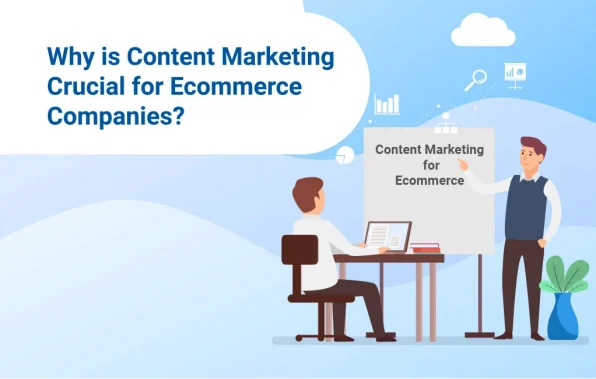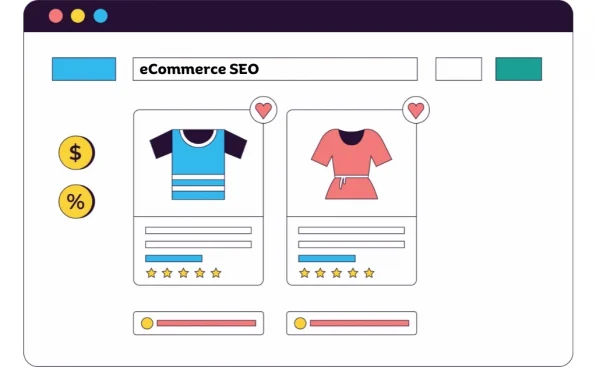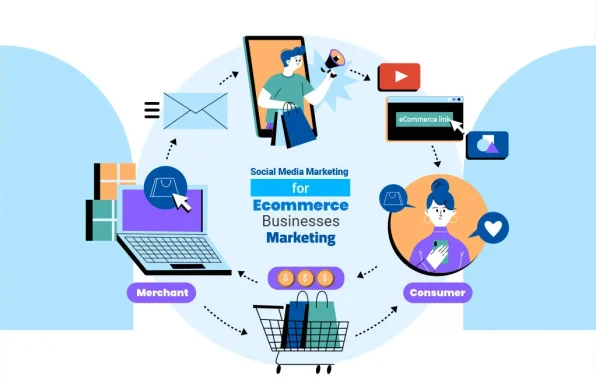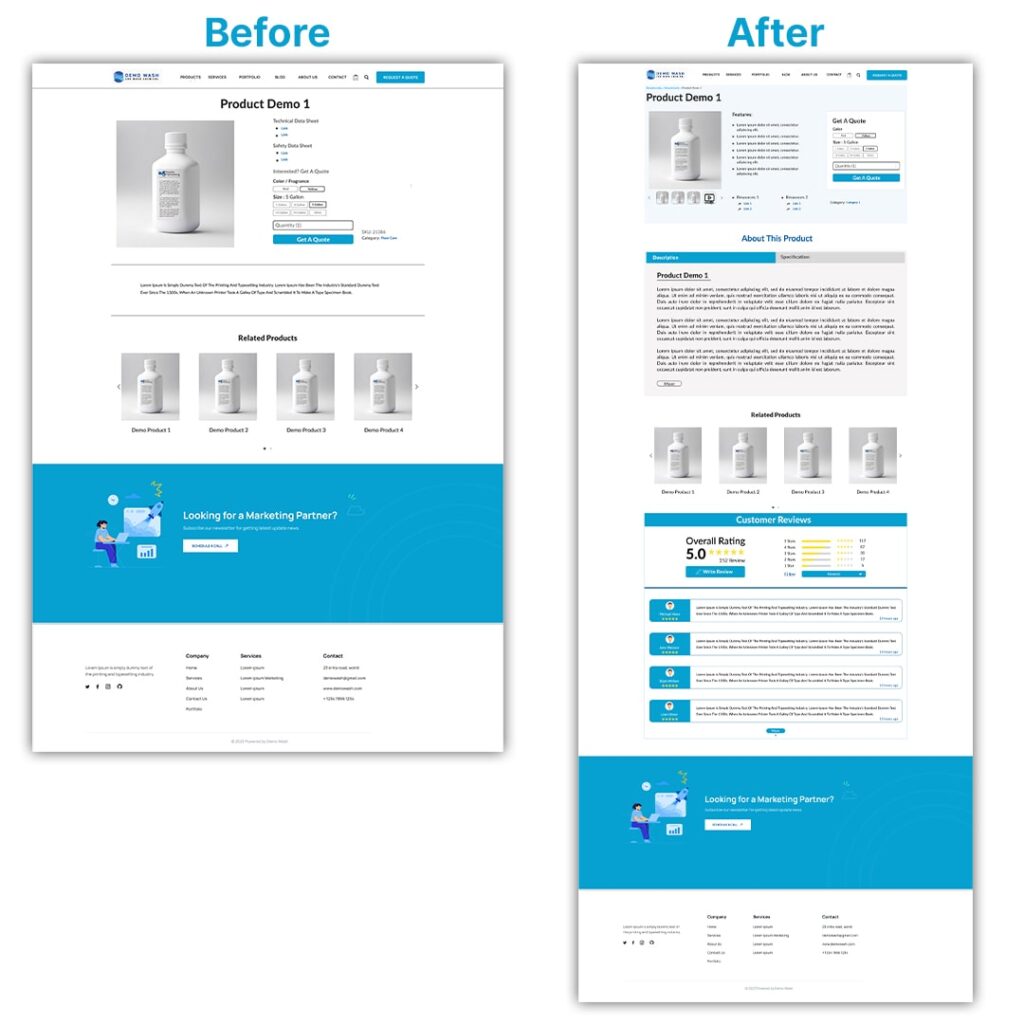Ecommerce content marketing is a effective strategic approach used in online businesses to attract customers through valuable, engaging, and relevant content. In today’s digital era, digital technologies have caused a huge change in how people buy things. Shoppers today are much smarter about seeking value, information and experiences beyond mere products.That means online businesses must provide engaging content that resonates with audiences on an emotional level if they want to live and thrive in the digital space.
That is to say, you must put content marketing front-and-center. It is one of the best cost-cutting ways for rapid expansion. Proven, it is more effective particularly for an ecommerce venture and, in general, any online startup business.
Big ecommerce brands like Zappos, ASOS and Sephora have used content marketing to great success. They have deployed captivating stories, user-generated material and expert guidance for an immersive shopping experience. Clear enough, eCommerce content marketing is no longer simply an add-on tactic. Rather, content marketing has proven its strategic worth to these leading e-commerce retailers.
Let’s dive deep to explore the Why, What, and How of content marketing targeted for phenomenal e-commerce success.

What is Ecommerce Content Marketing?
- Increase brand recognition and visibility
- Drive website visitors towards conversion
- Generate leads and sales
- Inform and educate customers
- Establish trust and authority
- Strengthen customer engagement and loyalty
Ecommerce content marketing strategy is the most innovative and cost-efficient way to develop and distribute relevant, valuable content. It’s objective is to engage an intended target audience and driving profitable customer action.
Content marketing is a long-term strategy designed to create relationships between you and prospective and existing customers. It is executed by offering informative and engaging material, such as blog posts, articles, infographics, videos or social media posts.
Today’s digital era presents businesses with an immense and ever-expanding arena for doing business – the Internet. Ecommerce is no mere a trend – it represents opportunities galore. In such an increasingly saturated online marketplace like today’s digital landscape, standing out against competition requires something beyond quality products, something more captivating and persuasive.
Beyond any confusion, an ecommerce content marketing strategy is most crucial to unlocking brand potential while forging stronger connections between your audience members. Ecommerce content marketing can help to meet multiple objectives:
Why is Content Marketing Crucial for Ecommerce Companies?
Ecommerce businesses depend on effective content marketing for numerous compelling reasons that contribute to their success in the digital marketplace:

Customer Engagement: Strategic ecommerce content marketing allows ecommerce businesses to engage their audience effectively by producing educational, useful, and entertaining pieces. Thus, you can capture potential new customer interest. At the same time, you can keep existing ones engaged and more likely to make repeat purchases.
Educating Customers: Ecommerce businesses may sell products or services which require explanation. And content marketing provides the perfect means of informing customers about product features, benefits and uses. Thus, they can make well-informed purchase decisions.
Building Trust and Credibility: Content that establishes authority for any brand helps create credibility with customers in its field. Consequently, customers become more likely to trust its products and recommendations.
Search Engine Visibility: Content creation is one of the cornerstones of increasing brand search engine visibility. That remarkably helps ecommerce websites rank higher in search engine results and increase exposure among potential customers.
Attract Organic Traffic: Engaging blog posts, articles, and product descriptions feature to educate about the brand. As a result, its products can draw organic traffic directly to ecommerce websites. And thus increase their likelihood of conversion by drawing customers who already developed an interest in the brand.
Long-Term Customer Loyalty: Content marketing goes beyond initial sales; regularly released newsletters and blogs remind customers about your company, encouraging repeat purchases as well as long-term commitment.

Social Media Promotions: Content marketing often extends into social media platforms. Spreading their scope, companies can reach a broader audience with shares, likes and comments that increase brand visibility.
Allows Differentiation: Content marketing gives companies an effective tool to set themselves apart in a crowded ecommerce marketplace. Creating unique and creative content with powerful storytelling can stand out.
More Cost-Effective Than Traditional Ads: Content marketing may be more cost-efficient than traditional forms of advertising. Although initial investment might be a requirement in producing original material for promotional use, its long-term advantages often outweigh this cost.
Tracking and Analytics: Ecommerce content marketing can be measured and analyzed. That provides companies with valuable data they need to determine which content is the most successful. It helps refine strategies to produce even greater returns.
Product Reviews and User-Generated Content: Encouraging customers to leave product reviews and share user-generated content can strengthen a brand’s credibility as well as provide essential data that could aid other buyers.
Content marketing strategy for ecommerce means sharing information online in a smart way to attract, interact with, and keep customers. It helps get more people to visit your website naturally and builds trust in your brand.
How Do Ecommerce Sites Benefit From Content Marketing?
Content marketing benefits eCommerce businesses in multiple ways; it plays an integral part in their digital success and must, therefore, be included as one of their business strategies. Here are three benefits content marketing offers them.

Search Engine Optimization (SEO)
Planned and far-sighted ecommerce content campaign can increase their presence on search engines and draw in additional organic traffic. SEO strategies like keyword research, on-page optimization and link building help websites rank higher in Search Engine Results Pages (SERPs), increasing potential customer acquisition rates.
An inspiring case in e-commerce success stories through content marketing is XyzMart. It is an innovative e-commerce venture focused on sustainable fashion who has seen search engine visibility skyrocketed. That heavily based blog posts, product showcases, and engaging videos about ethical fashion choices. And they attracted swarms of visitors, leading to an overwhelming rise in the ranks on search engines. Thus, it has become an icon for conscious shoppers online.
But to reap the max benefits of SEO, you should overrate mobile optimization when developing content marketing for your startup to grow. As more consumers rely on their phones for browsing and shopping online, ecommerce websites must be tailored specifically for mobile use.
Another key element to prioritize for maximum SEO benefits is quality content creation. While technical elements like URL structure and meta tags play an integral part in SEO success, creating valuable and engaging material remains paramount in drawing customers in. Your product descriptions, blog posts, videos or any other forms of content need to meet high-quality standards or else fail.
Relationship Building
Having good relationships with customers is really important for online stores to do well. Content marketing for ecommerce is a key part of building those relationships. Nurturing customer loyalty results in repeat purchases and referrals. In order to do this effectively, sites need to focus on offering content beyond product or service promotions. Educating potential customers through educational content can create lasting bonds between customers and merchants.
Sephora stands out as an online retailer that has achieved remarkable results when it comes to building strong customer relationships through content marketing. They focus on producing engaging and educational material catered specifically to meet audience interests and needs.
They have a fantastic website as well as an app and social media platforms where they publish lots of things. For example, there are reviews, tutorials and even comments from customers. They also invite experts to share behind-the-scenes information in their beauty world. From skincare tips and tricks to makeup advice and guides to hairstyles. They have plenty of content for all.
What’s more that people love it! Yes, the Beauty Insider community. It’s like having a large family in which Sephora and their customers are extremely close. It’s a tale of the power of sharing awesome things to bring customers and a store together to become the best of friends.
Planned and far-sighted ecommerce content campaign can increase their presence on search engines and draw in additional organic traffic. SEO strategies like keyword research, on-page optimization and link building help websites rank higher in Search Engine Results Pages (SERPs), increasing potential customer acquisition rates.
An inspiring case in e-commerce success stories through content marketing is XyzMart. It is an innovative e-commerce venture focused on sustainable fashion who has seen search engine visibility skyrocketed. That heavily based blog posts, product showcases, and engaging videos about ethical fashion choices. And they attracted swarms of visitors, leading to an overwhelming rise in the ranks on search engines. Thus, it has become an icon for conscious shoppers online.
But to reap the max benefits of SEO, you should overrate mobile optimization when developing content marketing for your startup to grow. As more consumers rely on their phones for browsing and shopping online, ecommerce websites must be tailored specifically for mobile use.
Another key element to prioritize for maximum SEO benefits is quality content creation. While technical elements like URL structure and meta tags play an integral part in SEO success, creating valuable and engaging material remains paramount in drawing customers in. Your product descriptions, blog posts, videos or any other forms of content need to meet high-quality standards or else fail.
Increased Conversions and Revenue
Ecommerce websites engaged in content marketing benefit from an overwhelming increase in conversions and revenue. By crafting high-quality and relevant pieces that resonate with their target audiences, content marketers can drive more visitors to their sites, resulting in increased conversion rates. Indeed, quality content helps establish trust, build credibility, and induce consumers to take action.
Wayfair is named first as one e-commerce venture that successfully increased conversions and revenue through content proliferation. An online retailer specializing in home goods such as furniture and decor products, Wayfair used various strategies to increase conversions and revenue growth.
Effective Ecommerce Content Marketing Strategies and Examples
E-commerce businesses thrive by engaging and converting customers. Content marketing provides a crucial pathway for engaging audiences, building trust among shoppers and driving sales. Below, you will find six effective tactics and real-life instances of winning over and owning digital shoppers with compelling content marketing techniques.

Blog Posts for Ecommerce Content Marketing
Blogging can be one of the most successful strategies for marketing eCommerce, helping establish you as an industry expert while building trust among potential customers. Blogs provide you with an outlet to deliver high-value information to your audience while positioning you as such. Blog topics range from product reviews and tutorials to industry news updates and trends.
When crafting blog posts for eCommerce content marketing, it’s crucial that you fully comprehend both your target audience and their interests. Keyword research and analyzing search trends are excellent ways of finding topics which pertain to your business. Most impactful storytelling techniques may make the blog posts even more memorable for their readers.
Optimizing blog posts for search engines is crucial to drawing organic traffic to your site, such as SEO. This requires using relevant keywords throughout, formatting with headings and subheadings. Moreover, including meta tags and descriptions for every article published, as well as linking internally between posts on your website are effective seo techniques.
Social Media Marketing for Ecommerce Businesses
Ecommerce businesses, as part of their overall marketing plan, rely heavily on social media marketing in order to engage and reach more audiences online. More than simply having an active social presence alone won’t do it; brands need a strategy in order to stand out in a crowded online marketplace.

One effective strategy to increase brand visibility is user-generated content (UGC). Customers generate and share material related to the brand or products they like. In this case, the customer creates crucial social proof and, thus, increases visibility through promoting your products and brand.
Social media Influencer partnerships can also play an essential part in eCommerce business marketing. By working together with influential figures with large followings, eCommerce businesses can increase brand recognition and credibility while tapping into established communities as well as discovering potential new customers.
Fashion Nova is a great example of how a company can use social media influencers to boost their content marketing strategy for ecommerce. Fashion Nova, an instant fast fashion brand, strategically collaborated with an abundance of influencers and celebrities with massive social media followings to market its products effectively.
Buying Guides for Product Features
Consumers need help in selecting the best product. So, buying guides are invaluable resources that provide crucial details of different product features and specifications of various items. Thus, consumers can make an informed decision when making purchases.
One key advantage of buying guides is their ability to streamline shopping decisions and save time in the process. With so many products piled up online, having an expert guide is great. Outlining essential features and compare various alternatives can greatly aid the decision-making process and save time in making informed choices. Furthermore, such guides often include expert reviews that add credibility and trustworthiness.
An additional advantage of buying guides is providing consumers with knowledge about specific features which might not be readily apparent or widely known.
Say, consumers looking for camera guides should become knowledgeable of what aperture settings mean or TV screen sizes suitable for specific room sizes. By knowing these details, they can more readily assess if a certain product will meet their requirements or not.
From electronics and home appliances to beauty items – buying guides play pivotal when searching for what will fit best based on personal needs or expert opinions alike.

Infographics - Visual Content Marketing Tools for Ecommerce Stores
Infographics have quickly become the most effective device for marketing for eCommerce stores, offering visuals that combine data, statistics and images. In an appealing visual form, infographics present information clearly and engagingly for consumers online and keep them glued. Consumers feasting on an abundance of graphical data online provide eCommerce stores with a way to stand out from the competition. Eye-catchy and data-laden visual displays can quickly draw customers’ eyes towards you from elsewhere.
Infographics not only simplify complex information for viewers, but they can also enhance website user experience. By visualizing data, eCommerce businesses can remove excess text and make content scannable.
Especially mobile users who tend to skip through text as they are bored of reading every word of an article. Instead, infographics may increase engagement rates significantly by offering an easily digestible format which captures mobile users’ interest quickly.
But to maximize their effect on content marketing strategies, infographics must feature quality design and relevant data. A well-designed infographic must reflect your store’s branding while conveying messages effectively with visuals that convey its intended message effectively. It is proven that up-to-date statistics build credibility while offering valuable insight for readers.

Utilizing Video Content Marketing
Videos have quickly become one of the most watched forms of media online, including platforms such as YouTube and TikTok. By producing engaging, visually attractive videos, you can effectively promote your brand message, showcase products and build customer loyalty.
Videos provide an immersive storytelling experience when compared to traditional forms of content creation, using visuals, music, and sound effects to elicit emotions in viewers and create lasting impressions on them. They can also serve as an opportunity for creativity and innovation when conveying complex information or product features. Tutorials to behind-the-scenes footage to testimonials allow businesses to tailor their video formats specifically towards different stages of the customer journey.
Optimizing videos for search engines is key to making the most out of video content marketing strategies, similar to optimizing blog posts or product descriptions. Just as when writing blog posts or product descriptions, videos must include keyword-rich titles and descriptions featuring LSI terms. Transcribing or subtitling also allows search engines to index its contents accurately while catering to viewers who watch without sound and have accessibility challenges.
Take Gymshark as an outstanding example of an online store that reached its zenith through video content marketing. By producing captivating videos outlining workout guidelines and fitness-tip videos with user-generated content, Gymshark resonated across platforms like YouTube and Instagram. Thus, they succeeded in building up a dedicated and engaged following.
Category Descriptions for Ecommerce Content Marketing
Category descriptions can often go underrated when it comes to eCommerce content marketing. Yet, these descriptions play a pivotal role in guiding customers around your online store and finding what they are searching for. A well-written category description not only increases search engine rankings but also encourages visitors to click and stay longer on your website before ultimately making their purchase decision.
To develop effective category descriptions for eCommerce content marketing, it’s crucial to gain an in-depth knowledge of both your target audience and their needs. Conduct extensive research on potential customer pain points or queries while browsing different categories. Then, use this data to craft engaging copy that addresses such worries while emphasizing product features/benefits within each category.
Make sure that, besides being informative, your category descriptions are engaging and simple for readers to relate to easily. Use simple language bypassing industry jargon; add storytelling elements or personal anecdotes that capture readers’ interest. Remember, keywords are essentially SEO-wise but must be stitched naturally into the text rather than feeling forced, biased or repetitive.
Amazon, the giant online retail chain, strategically utilized category descriptions as a content marketing tactic that contributed significantly to its success. By crafting comprehensive yet SEO-rich category descriptions for their products, Amazon improved in both user experience and search engine presence.
Amazon used category descriptions as an efficient way to guide customers through its extensive product offerings, simplifying navigation. Their expert usage not only improved user journey but also strengthened SEO rankings for higher visibility and sales growth. Indeed, category description has solidiffied Amazon as one of the go-to e-commerce leaders. Thanks to their category-specific content marketing efforts.

FAQs
Content marketing entails three critical stages – Create, Curate and Circulate. Generating original, valuable content and curating relevant information in them to circulate to the target audiences are integral parts of successful content marketing strategies.
Content marketing encompasses six main elements – Strategy, Planning, Content Creation, Distribution, Promotion and Analysis. A complete content marketing approach involves strategic planning as well as creating engaging content, which is then effectively distributed, promoted to targeted channels, and finally evaluated for impact analysis.
In content marketing, keywords refer to specific words or phrases strategically integrated into written text in order to improve search engine visibility and engage target audiences. They help search engines identify useful content and, thus, help potential readers locate crucial info quickly.
Now is an apt time to reflect on the profound shift taking place within digital marketing, where content marketing turns out to be the cornerstone of ecommerce success. We have explored the significance and strategies of effective e-commerce content marketing. So, it is abundantly clear that the digital age is to be won by information-heavy storytelling, visuals, social promotions and more.
To build trust with customers, improve SEO rankings or strengthen relationships, content marketing plays a vital role in the spiralling and proliferation of any online platform. Adopting such strategies could open doors for further expansion of e-commerce business development in this ever-expanding realm of digital marketing.








